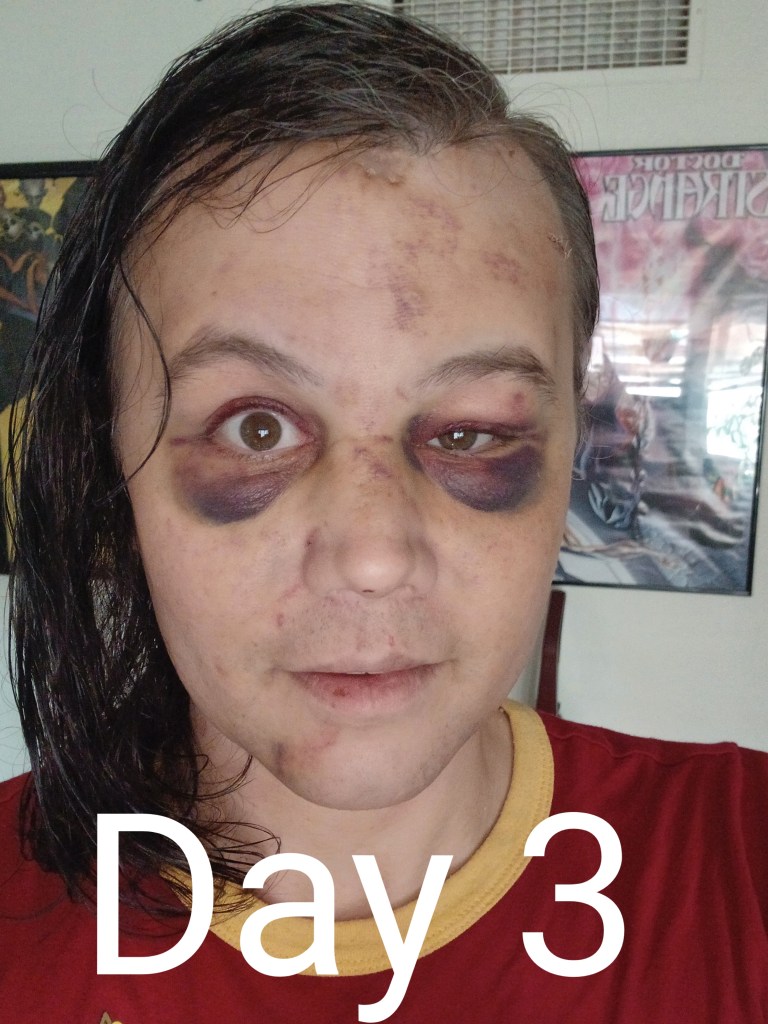We’re living in dark times. Every time you turn on the TV or open social media, you’re bombarded with terrible news that is often life-altering if you’re queer.
The Trump administration is busy dismantling LGBTQ+ rights and protections, attacking the trans community left and right, curtailing free speech, and, since they can’t overturn Roe v. Wade again, they’re attempting to destroy almost $10 million worth of taxpayer-funded birth control.
And every time a big event happens — like Charlie Kirk being shot — it always seems to circle back around to queer and trans people being to blame or it increases the attacks from politicians and your fellow Americans. Kirk spent his career demonizing LGBTQ+ people and other minorities, spreading misinformation about the trans community, and regularly spewed hate on his podcast, and yet the queer community has had to listen to Kirk being turned into a martyr while even celebrities who claim to be allies, cry over his death — we’re looking at you Jamie Lee Curtis and Kristen Chenoweth.
After years of slow progress being made to inch us closer to equality, the Republican Party — and MAGA in particular — has dismantled many LGBTQ+ protections and has plans to do even worse, which means that it can be a daunting task for queer and trans people to protect our mental health.
So to find out how to preserve our sanity in the current political climate, and what steps we can take to feel better, PRIDE spoke with Nikki Huijun Li — a therapist who specializes in LGBTQ+ patients, neurodivergence, Asian mental health, and polyamory/ethical non-monogamy and the founder of Kitchen Table Psychotherapy — and Dr. Shanéa Thomas, a Black queer nonbinary licensed clinical social worker at Thomas Consulting and Therapeutic Services.
Are queer and trans people currently experiencing greater negative impacts on their mental health and well-being?
Nebojsa Tatomirov/Shutterstock
Things have never been easy for marginalized groups in this country, but the Trump administration has made it their mission to attack LGBTQ+ rights, protections, and even access to medical care. The current political climate and state of the world “disproportionately affect queer and trans people’s mental health and well-being,” Huijun Li tells PRIDE.
Dr. Thomas agrees, and says that there has been an “uptick lately” in terrible things happening, but “oppression and discrimination have always existed.” She cautions that trying to weigh which decade was worse is a fool’s errand because “what is bad today, can be something worse tomorrow, and we will only know that if we actively work to stay alive and find out. I think we are past asking what and when has been worse; it’s always been bad.”
What trends are you seeing in LGBTQ+ clients’ mental health right now?
The 24/7 news cycle and being hyper vigilant about your safety takes it’s toll, and both experts have noticed how the current political landscape is having a direct impact on their client’s mental health.
Huijun Li’s clients are dealing with “persistent anxiety, major depression, feelings of fear and dread,” while Dr. Thomas says that people are dealing with “constant worry, losing hope, fear, overwhelm, isolation” becuase they are being impacted by the current political climate.
“I have even spoken to some of my clients who felt like they needed to ‘go back into the closet’ in order to stay safe (some of that includes making decisions to limit healthcare, or even leaving their gender markers which don’t align with their identity on their passports/ids/etc in order not to be ‘clocked’ around their queerness or trans-ness),” Dr. Thomas explains.
What can be done to help protect their mental health and peace?
EF Stock/Shutterstock
According to Dr. Thomas, building a community is the key to protecting your peace and holding onto emotional and mental stability, but you may also need to enlist professional help and encourages LGBTQ+ people to work “with aligned mental health and community professionals in order to have uninterrupted care but also to stay abreast of new or promising solutions to health and life issues that may be affected by the larger government system.”
Huijun Li says you also need to take time away from the stresses of the world and the 24 hour news cycle and spend time being silly with friends. “Host bad art nights, zine workshops, outdoor dance parties,” she recommends. “Remind each there is good in the world and that is what is worth living for.”
What can do today, or even right now, to protect your mental well-being?
Dr. Thomas’ tips:
- Lessen your social media intake!!! I like to tell my clients “if there is something you NEEDED to know, someone will tell you,” but the constant scrolling and keeping up with details is not safe or healthy long-term.
- Get some rest. We are on a 24/7 news cycle that is made to tire us out. This is all by design…and if you choose to constantly engage in the rhetoric…it will work. Don’t feed the machine, invest in yourself.
- Find a supportive outlet: friends, journaling, running, making rugs, painting, learning a new skill; Create something! Feed yourself and your esteem with art and creativity
Huijun Li’s tips:
- Go on a walk. Bring your keys and leave your phone.
- Curate a playlist of songs that make you feel good.
- Identify a safety person/emergency contact for safety planning.
What can you do for longer-term mental health protection?
Dr. Thomas’ tips:
- The reality is that most people are using a vice right now to get by (weed, shrooms, alcohol, sex, food, etc.). Whatever it is, if it is impeding on your everyday care and functioning, it’s too much and losing its purpose. Use things in moderation.
- If they trust their doctor or care provider, or even a social worker, speak to them about a long-term plan of care, especially if they do not have insurance or funds for medication, needed surgeries, etc. The more people know, the better they can plan ahead for the crises on the horizon.
- Be aware that doomscrolling and watching constant images of death WILL desensitize you. You don’t need to know all the details. You just need to know what to do to stay safe. Don’t construe being informed with being obsessed. Listen to your body. Are you exhausted after learning violent information? Body numb? Hypervigilant? Get off the sites, and as people say, ‘touch grass.’
Huijun Li’s tips:
- Invest time and energy into community building.
- Learn to discern real danger vs fear based tactics.
- Seek help from a mental health professional and build a support relationship now instead of wait till you are in crisis.
If someone is in active crisis, what advice can you share?
Sabrina Bracher/Shutterstock
When the world is overwhelming you and you feel like you’re under constant threat of having your rights stripped away, it’s easy to isolate yourself, but according to Huijun Li, the best thing you can do is ask for help. “Reach out to trusted individuals and organizations in your life. There are people who want to help you. Please give them the opportunity,” they say.
Dr. Thomas agrees, saying, “Having at least one ‘person’ in your corner, even if they are a mobile/online buddy, can save a life.” He also encouraged people in crisis to know your “local emergency crisis number, but I also understand that a these resources are connected, at times, to the system who are incriminating queer and trans folks,” and said that reaching out to “community based resources” and putting together a safety plan and a safety team may save your life when things get really hard.
LGBTQ+ crisis hotlines
The Trevor Project
The Trevor Project Lifeline, for LGBTQ+ youth (ages 24 and younger), can be reached at (866) 488-7386. Users can also access chat services at TheTrevorProject.org/Help or text START to 678678.
Trans Lifeline
Trans Lifeline, designed for transgender or gender-nonconforming people, can be reached at (877) 565-8860. The lifeline also provides resources to help with other crises, such as domestic violence situations. Find more information at https://translifeline.org/
LGBT National Hotline
The LGBT National Hotline provides a confidential safe space where callers of any age can speak about sexual orientation or gender identity/expression issues. It can be reached at 888-843-4564 11 a.m. to 8 p.m. PST (2 p.m. to 11 p.m. EST) Monday through Friday, and on Saturday from 9 a.m. to 2 p.m. PST (Noon to 5 p.m. EST).
LGBT National Youth Talkline
The LGBT National Youth Talkline provides youth ages 25 and younger a space to talk about relationship concerns, family, bullying, school issues, HIV/AIDS anxiety, safe sex information, suicide, and more. It can be reached at 800-246-7743 11 a.m. to 8 p.m. PST (2 p.m. to 11 p.m. EST) Monday through Friday, and on Saturday from 9 a.m. to 2 p.m. PST (Noon to 5 p.m. EST).
Crisis Text Line
Crisis Text Line has previously partnered with FOLX Health for queer-specific services. It is available by text, web, and WhatsApp in both English and Spanish, connecting those who reach out with a live, trained crisis counselor within five minutes. You can seek support by texting HELLO or HOLA to 741741, or through WhatsApp by messaging 443-SUPPORT or 442-AYUDAME for Spanish.
The Pride Institute
The Pride Institute has helped LGBTQ+ people recover from substance use disorder, sexual health issues, and mental health conditions since 1986. Reach out at 952-934-7554 or at https://pride-institute.com/
National AIDs Hotline
The National AIDs Hotline provides resources to people living with HIV, and can direct callers to test sites, medical care, prevention services, housing, and more. Call 800-342-AIDS (800-344-7432) or 800-243-7889 for Spanish. Click here for more hotlines in your state.
National Runaway Safeline
The National Runaway Safeline provides assistance to runaways, including resources, shelter, and transportation. By calling or texting 1-800-RUNAWAY (1-800-786-2929), you can connect with a trusted, compassionate person who will listen and help you create a plan to address your concerns. Live chat is also available at https://www.1800runaway.org/youth-teens/get-help
National Domestic Violence Hotline
If you or someone you know is affected by domestic violence, the National Domestic Violence Hotline can be reached at 800-799-7233 or by chat at https://www.thehotline.org/here-for-you/. Other resources can be found here.
Is there any message of hope you can share?
“Again, please never normalize the level of violence you are experiencing,” Dr. Thomas says. “This is all by design: We are supposed to be tired; We are supposed to be worn out; We are supposed to be thinking of ourselves as subhuman. We are not. Being on the planet during this time is a testimony of strength and resilience. We are here because our ancestors fought for us, now it’s our turn. But please know, they did not survive in isolation. Now is the time to find your people.”
And Huijun Li has four simple but powerful words to share: “You are not alone.”
Soureces cited:
Nikki Huijun Li, a therapist who specializes in LGBTQ+ patients, neurodivergence, Asian mental health, and polyamory/ethical non-monogamy and the founder of Kitchen Table Psychotherapy.
Dr. Shanéa Thomas, a Black queer nonbinary licensed clinical social worker at Thomas Consulting and Therapeutic Services.

